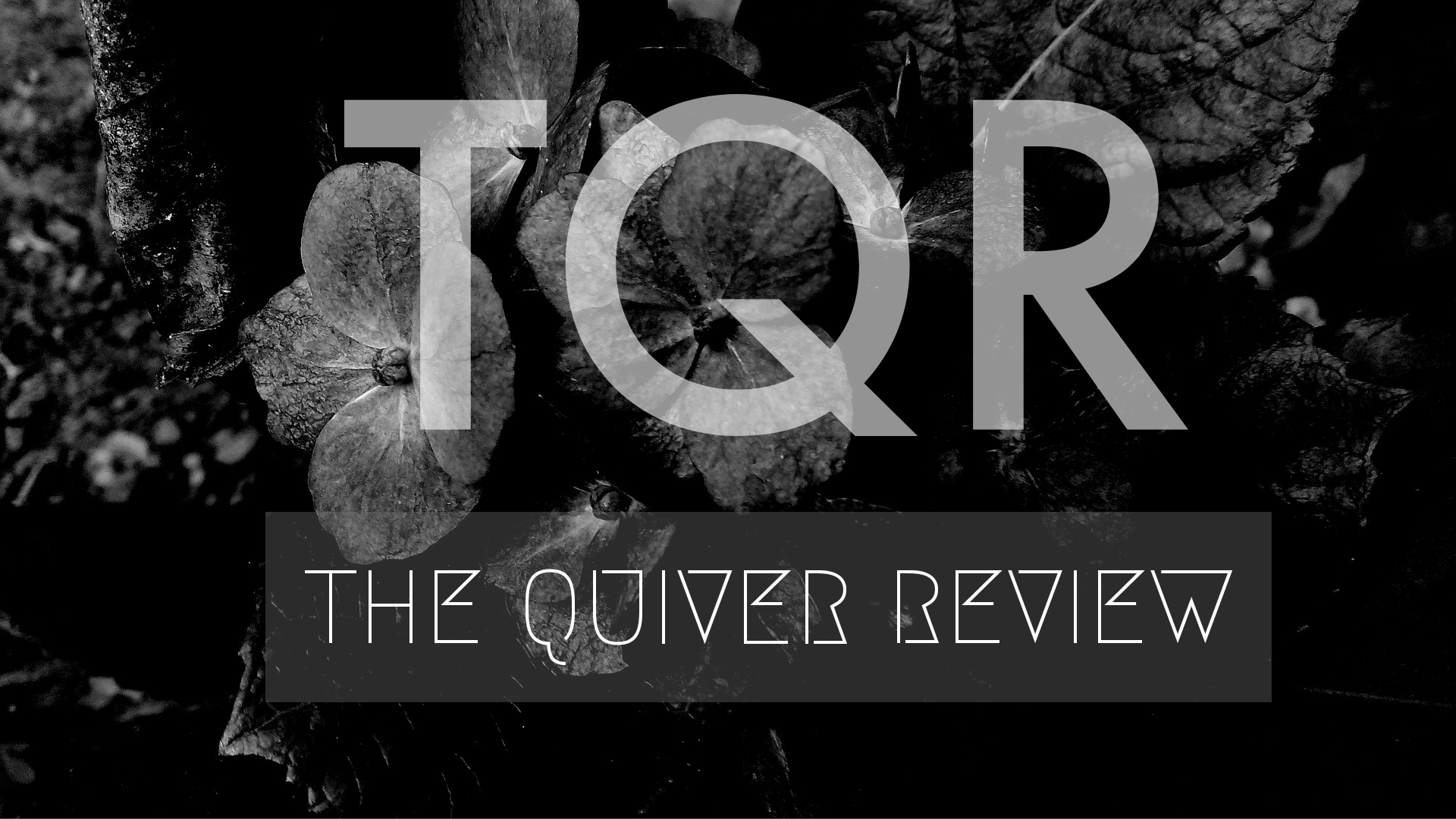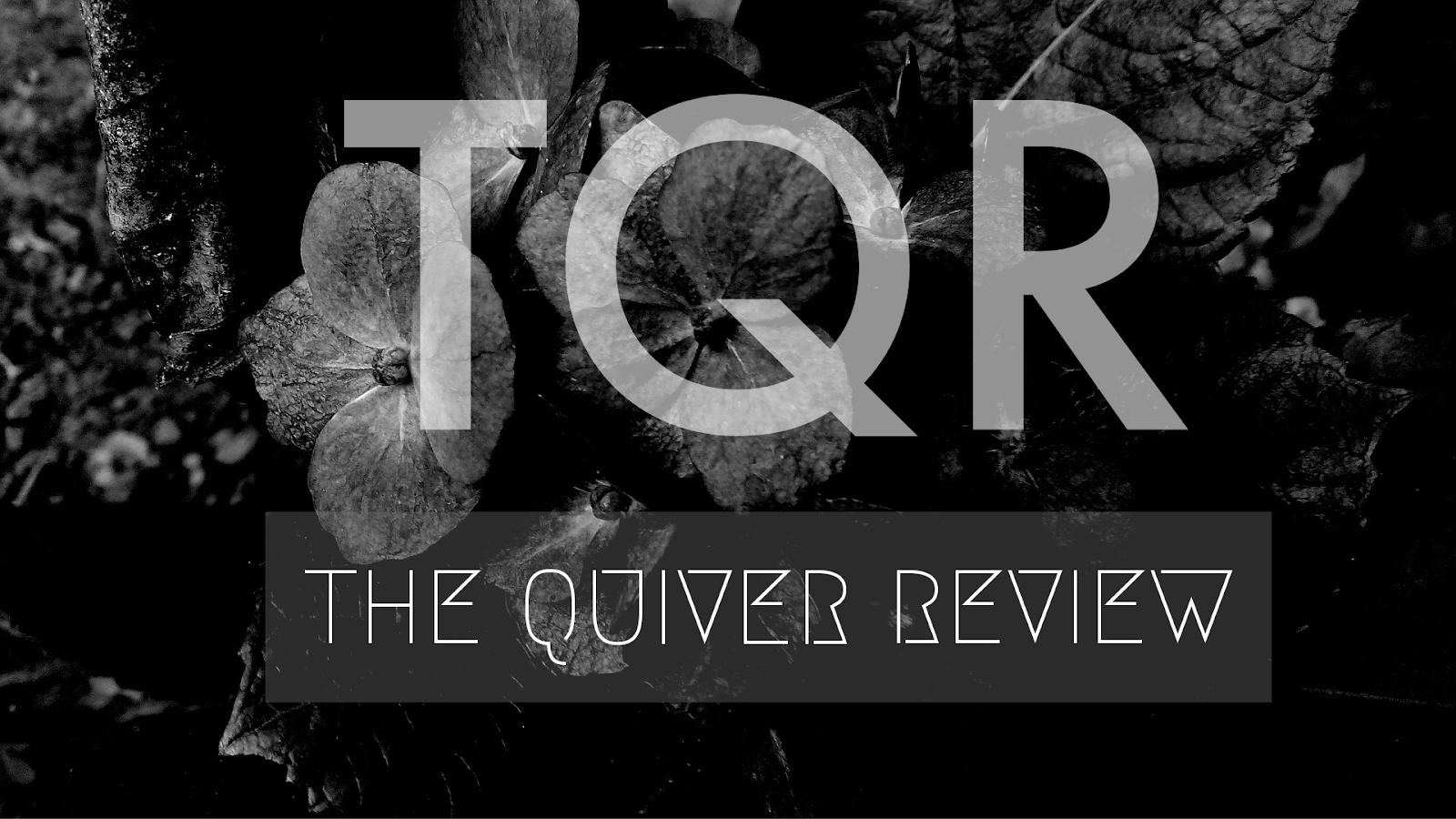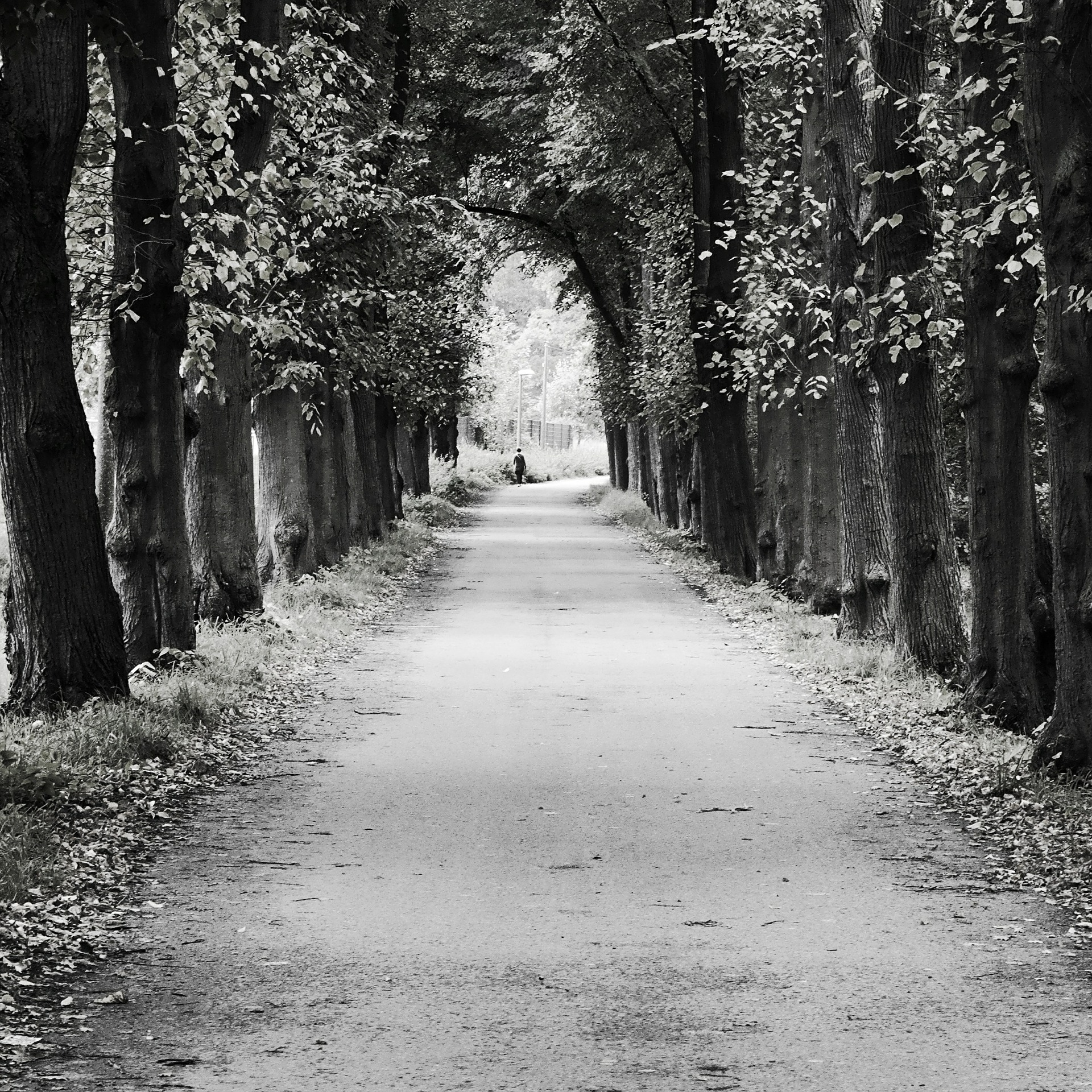Fire Deaths by Karen Lethlean
Karen Lethlean is a retired English teacher. With previous fiction in the Barbaric Yawp, Ken*Again, Pendulum Papers and has won a few awards through Australian and UK competitions. Land Lore is published in Bangalore Review, and recently Bleached Bones won Wild Words Solstice Short Story writing competition. South Shore Review also published Rock Pool just recently. Karen is currently working on a memoir titled Army Girl. About military service 1972-76. In her other life Karen is a triathlete who has done Hawaii Ironman championships twice.
Fire Deaths
Mary couldn’t help it. Impossible to ignore those floppy ears, dark eyes and puppy jowls. One individual among so many furry caterpillar creatures who snuffled up to their mother’s ‘milk-tray’, pushing and tugging at her teats. Later when one began nibbling her fingers Mary felt a fierce ownership urge.
Named him Deefa - D-fa-dog. She felt sure her husband Jack also desired a farm dog.
She remembered their romance, a time when they wandered along silken beach sand. And held her hand out to scoop up setting sun auras appearing burnt into shallows. Skipping through memories to revisit an initial opening of the home paddock gate. Even then dusk stuck to horizon edges and settled behind a Ute pinging while it rested.
Mary enjoyed the growing dog by allocating it future roles. A guard dog for security when Jack was away. Lately there had been frequent absences, to help a rebuild a fire ravaged shed, plough paddocks for an injured neighbour, or co-operatively wade through paperwork to access drought assistance packages. Sometimes Jack left her alone, gone for days on end.
‘…a man has to fight to get ahead… one time when I need help, they will say, what about when time you didn’t…’ were parts of retorts when Mary tried to ask Jack to stay on their farm. So Mary bit down those words, for the most part. She tried to keep busy, always plenty to do.
Mary wistfully thought about Deefa as being an excuse for twilight walks up into their farm’s uncleared paddocks. Telling the dog about rabbits, sunsets, lizards, hard kangaroo’s droppings and dried remains of once prolific wild flowers. In her mind Deefa responded to her words, making conversation with a mere tilt of his head or soft whine. She didn’t need to tell Jack about these ambles.
Before too long Deefa trotted everywhere right beside her. Mary held empty fingers before her thin waist, to contemplate how few worldly goods were hers alone. Beyond these wrinkled digits she saw only dry cracked earth collected in her life lines well before day’s end. She breathed in a lack of rain. But couldn’t help be mesmerised by fallen seed pods nestled at the base of grass trees, orange, bevelled, testicular.
Dry, harsh summers, a season which brought more dust in from the west, on frequent high winds. Paddocks already burnt to a crisp, with grass brown or earth bare even along creek banks. Any water marshy, black mud now turned to grey everywhere she looked. Constant worry about a lack of moisture made everyone crankier than usual. Amplified by unceasing motorised drone of insects.
Blissfully unaware Deefa responded with lolling tongue and wagging tail to demonstrate unconditional acceptance. His water bowl was always full, occasionally an ice block floated, at least for a few minutes.
Mary even tolerated Deefa’s incessant gnawing.
‘Needs to keep a healthy jaw and teeth,’ her defence when Jack made a disparaging comment.
‘Getting rid of his puppy teeth,’ her next justification. But Deefa now beyond an age, so this explanation already past its use-by date.
Jack, anxious and not able to embody these same forgiving attitudes, announced, ‘Bloody thing has to go. Damn dog gnaws everything not able to move away.’
Mary knew any reaction to this ultimatum would be counterproductive so she kept a lid on her emotions. Last thing which ‘…had to go…’ a juice extractor - still got dragged out from hidey hole under the sink. Mary enjoyed a mechanical buzz as fruit pulped. Rescued from a barely surviving, scrawny pear tree. Green globes often blown off, victims of ferocious winds, to lie about on the ground, rotting and wasted. She couldn’t bear to contribute to further wastage.
One drowsy afternoon a lightening crack, followed by Deefa’s hysterical barking, dispersed by piercing howls brought Mary rushing. Chickens flapped out of her way like a poultry parting of biblical waters.
‘What are you doing?’ She screeched at a sideways canine look of confusion.
Looking up she couldn’t argue with ferocity of thick smoke now drifted in from uncleared paddocks previously part her and Deefa’s innocent explorations.
‘Where is Jack?’ She asked a now spinning dog.
She remembered he talked about dealing with several tubes of gourmet gum trees, ‘today, I’ll get them planted.’ Yes, he intended to plant trees outside home paddocks. He’d been preparing ground along fence lines. Out there while a dinner congealed, trying to beat holes into dry earth. Still hammering no matter how often Mary told him to come in and eat. Later, away from her nagging, he’d saunter up to the house, stains from sweat around his neck, under his arms, his brow heavy.
‘Worth it, Mary, we’ll be rolling in it soon.’
Jack’s mind projected in a short time these tiny trees grown to harvestable timbers. Then local artisans, would form an unruly queue, fingering dusty notes.
Mary doubted seedlings might ever make it into earth anyway, much less be grown to be an income netting maturity. Be in his shed with a dismembered vintage motor cycle he found in Callow’s yard and promised to fix up for Ted. Happen sometime next decade, Mary thought. All those bits and piece are keeping company with bales of seeds for various innovative crops and mulch starter supposed to improve soil microbes. Things only collected dust in his shed. Sometimes Mary wondered if archaeologists as they dug up this farm, in some future government funded exploration, might marvel at an array of perfectly preserved specimens from under corroded roof remains.
Now a fire to crush a potential leg up out of their constant scrounges for cash. Going back to those long-haired, leaf weaving hippy artists to tell them, ‘fire ball sprung up, very day I set aside to plant those trees.’ Example of perfect timing, capable of keeping them giggling into their wacky-tobacco for weeks.
While Deefa cowered in dust, Mary tried to decide what to do.
Before dark, before a wind change brought flames close to the house. Before she filled down pipes and opened tank valves Deefa disappeared. Last seen heading off uphill. Tail between his legs, howling worse than ever.
When her husband finally emerged from ash swallowed distances. Mary already more agitated than she thought possible.
‘You seen Deefa?’
Jack began blubbering excuses. ‘Animal run off…can’t be trusted…dog didn’t know a good thing…’ Yet he couldn’t seem to make eye contact. And before long dead animal smells wafted in on late afternoon breeze, right from upper paddock’s scrubby edges.
‘A dead roo,’ Jack said, his eyes locked on a growing cobweb, now dangling a strand of dust from cornices.
Mary’s reaction instant. She lunged at him, ‘He tried to warn you…’ She cursed and lashed out at Jack’s defiant jaw. Misplaced hysterical largely off target, or ineffectual. Soon enough she went outside and kicked up dust. Eventually vomited into unsympathetic dirt. Jack’s attempts to placate her were wildly rejected. Well past time for dinner preparation Mary sat on dirtied back steps and racked with sobs, utterly inconsolable. Everyone kept their distance, hopeful this storm, like a small brush fire, might pass quickly. But she still sat there alone, dry retching at intervals, still sobbing well after dark. No one ate a hot meal dinner. Instead some crackers, cheese and cold boiled eggs were found and distributed amongst those who’d rushed to help. Yet none of them complained, not even at a mumble.
By moon-rise real damage emerged. Mary embraced a bitterness, toward her husband and farm life without a canine companion. She nourished this darkness and felt it grow even as the child she carried slipped away. Jack needed to deal with blood dribbled from places he didn’t care to think about. Eventually he loaded his still sniffling wife into the car with an old towel between her legs and sped through darkness, while headlights cut a swath over low-slung blackened pastures.
‘I am sorry love. I had no idea....why didn’t you say...Getting yourself so worked up just over a dog. I am so sorry…’
Jack kept up a mantra and hoped at some stage Mary might actually hear.
With his wife admitted to hospital Jack sheltered in a dusty motel, where an air conditioning unit rattled and squeaked through the night. Just as light soaked through early hours, still heavy with burnt, dead animal scents, opening and closing car doors as other guests took leave woke him.
With farm out of sight, Mary tried to process things. Poor dead Deefa, and a lost baby. Best to push out everything from her mind. Sounds of road trains, finally permitted through road closures, with lights arching across hospital ward’s ceiling in a parade of movement somehow comforted. Mary promised herself an escape from this lonely life she’d so wrongly thought of as rural utopia. If those trucks were going somewhere, so could she. And not just sucked deeper into now ash ridden home paddock’s dust.
When she’d met Jack, beach sand between her toes, strong gritty grains, air salty, and listened to him talk about farm’s wide open horizons. Excited by his ability to capture a sense of breathing in gasps of clean, dry air. And how good healthy earth might be turned with toil. So rich and moisture laden, Mary imagined much more.
When new day eventually tumbled into town Mary made her vow, unperturbed by haze of solitude now encasing her hospital bed. As if through an open window she heard high squeaks and wind chime noise of small birds. Then whirrs of a large dove exploding out of low shrubs. Lifting up on one hip, she watched pink and grey galahs wheeling across nearby dry, seedless paddocks, in some sort of purposeless frenzied air-current dance, Mary promised to leave; nothing and nobody would stop her.
Sickened and weakened by the miscarriage, and loss of her companion, Mary laid watching bird life focus and retreat, and envied them. Even if their rasped, hungry song smarted and confirmed her conviction to leave. Disjointedly she tried to consider options, but soon realized, there was nowhere to go. Like most women who lived on district’s farms, she couldn’t even drive a car. In abdicating this right to their menfolk wives colluded in their own immobility and isolation. With no money of her own, nor did her husband. Bank and rural agents held strangleholds on all their funds. Even if they had a good harvest it might be several years before they actually viewed any cash. More likely to be only be numbers in an account’s pass book, not crisp foldable notes. If she could feel such notes, smell the new-book aroma, crinkle their paper plastic surface, look on famous faces depicted, Mary might enact her departure.
No family, near enough to help; her parents were taking advantage of New Zealand’s set pensions. And anyway running home to her mum probably bring about a, ‘You made your bed, now you have to lay in it…’ cold shoulder reaction.
‘Till death do we part?’ She reflected bitterly, but the death of what? In one dark afternoon, a pet and a child, trees and more water than could be spared was taken. Probably fences, sheds and random machinery too. Never to return. Lying in a blur of senseless pain, Mary again promised one day, for her, to find an after-farm life.
No words made sense of her outrage, as Mary listened to instructions to return home after a few scant hours.
‘Not good reclined, taking up a hospital bed, wallowing in all this.’ Said a short, white coated man, wearing a stethoscope like a badge of rank. Only other thing Mary remembered hairs sprouting from under his nose. ‘Where flies go in winter, you can see their legs hanging down…’ her father always said.
She simply couldn’t deal with this elemental act. Irrevocable fire worked to forge more emptiness. A house still stood but their farm now burnt beyond recognition, did not curb vehemence at prospects of enduring a depressing, hot drive back out of town. She couldn’t even conjure up a slither of energy required to open those gates. But here she was, trapped by dust, ash and smoke, still rasped in back of her throat, made it difficult to breathe. Her arms felt leaden, coursed with heat. Impotence and rage were tearing at her very flesh. She’d already forgotten Deefa’s yeasty breath next to her cheek as they followed a skink trying to escape ant tormentors. Purged from her brain elation at first seeing Jack’s cabin sheltered by a few scraggy fruit trees. Gone too dampness settled on those early morning beach trails, where they’d first kissed under dripping palms.
Luckily nursing staff understood human company was not high on Mary’s priority list, and left her to hover in various stages of sleep.
No one saw Jack as he walked an empty corridor; neither did he do anything to draw attention to himself. He still scratched at dirt even after too long, more than enough soap and hot water in the motel’s tiny bathroom. Going to take more than a few cold beers to negate sight of his toe pushing at a black patch of mould where two shower tiles met, while soap laden water ran down drain ways. Not to mention sight of his wife’s miscarriage, or efforts to rescue a yelping dog running out of far too close flames Jack had failed to notice.
Most of the night he’d tossed about, dwelling on yesterday’s losses. He tried to separate dramas. Recalled how he’d been head down working, ignorant of dangers. Yet everything remained knitted and irrevocably linked. Would she have lost the child, if he’d been paying attention? No solution to this dilemma, so Jack decided it all didn’t bear any more thinking about. Anyway, what was done, was done. Past was past, gone was gone. Couldn’t make dead things alive. Best thing you could hope for was to plant a new crop.
Jack stood by Mary’s bed, forlorn. As tears welled and threatened to spill from his reddened eyelids.
Through her pain she saw roses, smelt their heady fragrance, and knew without saying he’d taken them from church-yard bushes.
During this sleepless night Jack too made a pledge he meant to keep, so he told his wife, ‘We’ll take a holiday, on the coast, love, soon as you are well, I swear.’
As Mary let her head sink into a thin pillow. Let oceanic murmuring rock her, same as a long history of family holidays. So close; just there, behind her half-closed eyes. Also glimmers of a dusty kelpie, same colour as last night’s spilt blood, now soaked into ash-coated dust. She held onto images of Deefa as he galloped, without fear, into surf.











Comments